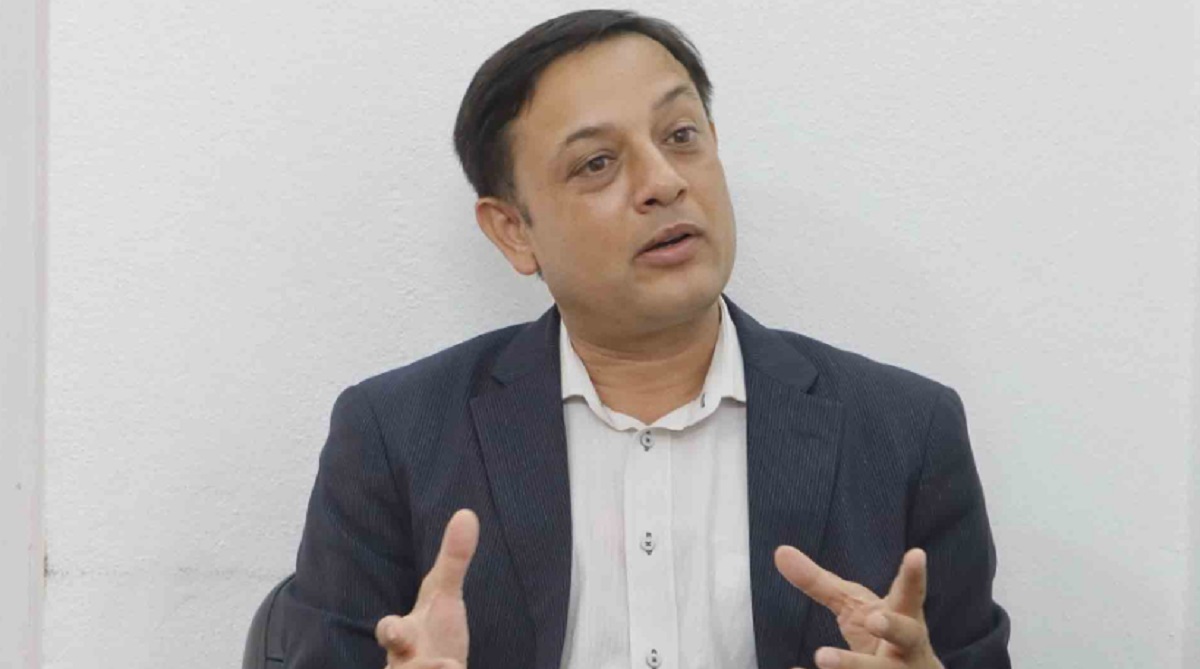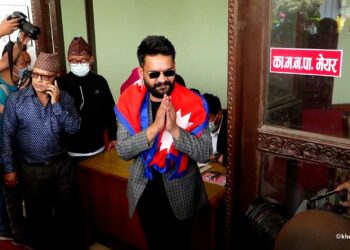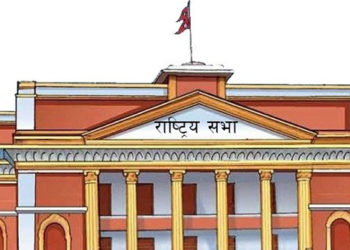The Rastriya Swayantra Party (RSP) is currently in opposition after the Nepali Congress and the UML formed a coalition government around six months ago.
The opposition now consists of the Maoist Center with 32 seats, the RSP with 21 seats, and the Rastriya Prajatantra Party (RPP) with 14 seats.
Despite the KP Sharma Oli-led coalition government resorting to ordinances without convening a session of parliament, the opposition parties have failed to speak in unison. While they support convening parliament and addressing the ordinance through legislative processes, these parties have not been able to unite in opposing the government’s actions.
Adding to the tension, RSP Chair Rabi Lamichhane has been detained in connection with a cooperative case, further straining the party.
Why has the opposition, struggling with internal challenges, failed to come together? What is the RSP’s stance on the ordinance? And why hasn’t the Prime Minister been able to pressure the opposition to convene the winter session of parliament?
Khabarhub posed these and other pressing questions to Dol Prasad (DP) Aryal , Acting Chair of the RSP.
Excerpts:
The government has been issuing ordinances without convening parliament. How does your party view this practice?
The government’s reliance on ordinances, despite having the opportunity to convene parliament, is deeply concerning. Our party has expressed opposition to this approach. A government with a two-thirds majority should not fear the opposition or the people.
Instead of taking the ordinance route, an all-party meeting could have been held for consultations. This reliance on ordinances sends a negative message about the government’s respect for democratic processes.
Even if the provisions in the ordinance are good, the process of bypassing parliament is wrong. The previous government led by KP Sharma Oli followed a similar approach, and it appears that the current government has failed to learn from those mistakes.
Has the government shared any updates about when parliament will convene?
It is indeed surprising that the government has time to issue ordinances but not to convene parliament. I was informed by the Speaker during our discussions that parliament would convene in the second week of Poush (December 27), but that did not happen. The government’s indifference is disappointing.
We demand an answer from the government. Holding parliament hostage reflects a lack of trust in elected representatives. It raises questions about the government’s intentions and its commitment to democratic values.
Some argue that the government fears running parliament because it would face criticism. Do you agree?
Yes, it appears that way. Bringing ordinances while sidelining parliament is a continuation of the old working style of the Oli administration. It seems the government is afraid of criticism and scrutiny from the opposition.
Criticism and suggestions from the opposition should be viewed as an opportunity for the government to align its work with public sentiment. By avoiding parliament, the government is showing a lack of confidence in its own coalition and decisions.
Why hasn’t the opposition been able to come together to challenge the government’s actions?
There were discussions about forming a united front, but no significant progress has been made recently. The opposition parties share a common stance against the government’s decision to bypass parliament, but coordination has been lacking.
We believe that parliament should convene promptly and function as the platform for debate and decision-making. However, it seems the government is avoiding this to escape accountability and criticism.
The government claims the ordinance serves the interests of two major parties. Why hasn’t your party taken a stronger stance against it?
Our party has been studying the matter closely. Official information about the ordinance reached us only recently, and we are still analyzing its implications. We have consistently warned the government against unilateral actions and demanded transparency.
Our focus is on ensuring justice and addressing the concerns of the people. We have no vested interest in the ordinance. The government’s approach of suppressing new and innovative ideas is troubling.
Opposition leaders like Madhav Nepal, Pushpa Kamal Dahal Prachanda, and Rajendra Lingden recently met at Singha Durbar. Why wasn’t your party part of this meeting?
That meeting was not a formal gathering of all opposition parties. From what I understand, it was a coincidental meeting. Our party members were outside Singha Durbar at the time.
We are, however, working on bringing all opposition parties together to demand that the government convene parliament and address pressing issues.
What steps is your party taking to ensure parliament is convened?
We have consistently urged the government to call a session of parliament without delay. Our leaders have raised this issue directly with the Prime Minister, and we will continue to press for accountability.
The ordinance should be debated in parliament, not imposed unilaterally. A government that avoids debate undermines democratic norms. We remain committed to working with other opposition parties to hold the government accountable.
Has your party had any recent discussions with the Prime Minister regarding this issue?
Not yet. However, if the government continues to avoid its responsibilities, the opposition will have no choice but to come together and confront the Prime Minister directly.









Comment